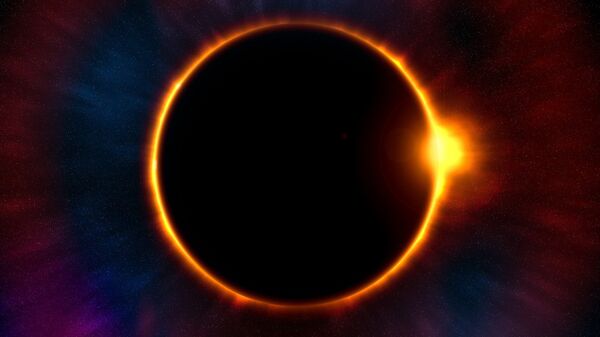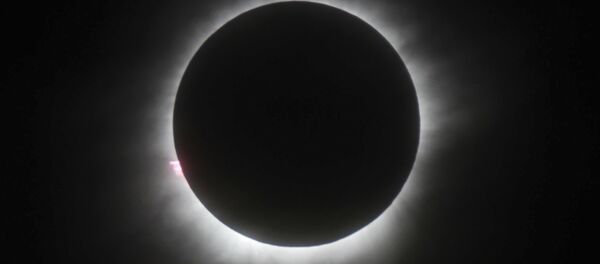Academics are confident the oldest solar eclipse known took place on 30 October, 1207 BC, having used a combination of biblical text and ancient Egyptian text to establish it.
According to the results, published in the Royal Astronomical Society journal Astronomy & Geophysics, the significance of this timing could now have consequences for the chronology of the ancient world, including the dates of the Egyptian pharaohs, in particular, the reign of Ramesses the Great.
Book of Joshua: 'Major Astronomical Event'
The biblical text in question comes from the Old Testament book of Joshua and has puzzled scholars for centuries, until now, that is.
It records that after Joshua led the people of Israel into Canaan — a region of the ancient Near East that covered modern-day Israel and Palestine — he prayed: "Sun, stand still at Gibeon, and Moon, in the Valley of Aijalon. And the Sun stood still, and the Moon stopped, until the nation took vengeance on their enemies."
"If these words are describing a real observation, then a major astronomical event was taking place — the question for us to figure out is what the text actually means," said Professor Sir Colin Humphreys from the University of Cambridge's Department of Materials Science & Metallurgy, and co-author of the paper.
"Modern English translations, which follow the King James translation of 1611, usually interpret this text to mean that the sun and moon stopped moving. But going back to the original Hebrew text, we determined that an alternative meaning could be that the sun and moon just stopped doing what they normally do: they stopped shining," he added.
Professor Humphreys, who is also a Fellow of Selwyn College, explained:
"In this context, the Hebrew words could be referring to a solar eclipse, when the moon passes between the earth and the sun, and the sun appears to stop shining. This interpretation is supported by the fact that the Hebrew word translated 'stand still' has the same root as the Babylonian word used in ancient astronomical texts to describe eclipses."
New Eclipse Code
Researchers at Cambridge University have developed a new eclipse code which takes into account variations in the earth's rotation over time.
From their calculations, they have now determined the only annular eclipse visible at this time was on 30 October 1207 BC, in the afternoon.
The oldest recorded #eclipse took place #OnThisDay 3224 years ago. https://t.co/fr6pItIMvU
— Cambridge University (@Cambridge_Uni) October 30, 2017
If their arguments are accepted, it would not only be the oldest solar eclipse ever recorded — but enable them to date the reigns of Ramesses the Great and his son Merneptah to within a year.
"Solar eclipses are often used as a fixed point to date events in the ancient world. Using these new calculations, the reign of Merneptah began in 1210 or 1209 BC. As it is known from Egyptian texts how long he and his father reigned for, it would mean that Ramesses the Great reigned from 1210-1276 BC, with a precision of plus or minus one year, the most accurate dates available," Professor Humphreys said.
"The precise dates of the pharaohs have been subject to some uncertainty among Egyptologists, but this new calculation, if accepted, could lead to an adjustment in the dates of several of their reigns and enable us to date them precisely," he added.
Previous Attempts
The professor and his co-author, Graeme Waddington, are not the first to suggest that the biblical text may refer to an eclipse. Earlier historians claimed that it was not possible, however, to investigate this possibility further due to the laborious calculations that would have been required.
The large granite block held in the Egyptian museum in Cairo, says that it was carved in the fifth year of Merneptah's reign and mentions a campaign in Canaan, in which he defeated the people of Israel.
Historians have previously used these two texts to try to date the possible eclipses, but not successful as they were only looking at total eclipses where the disc of the sun appears to be completely covered by the moon.
What they failed to consider, however, was it was possibly an annual eclipse, in which the moon passes directly in front of the sun, but is too far away to cover the disc completely leading to the characteristic "ring of fire" appearance.
In the ancient world, the same word was used for both total and annular eclipses.






